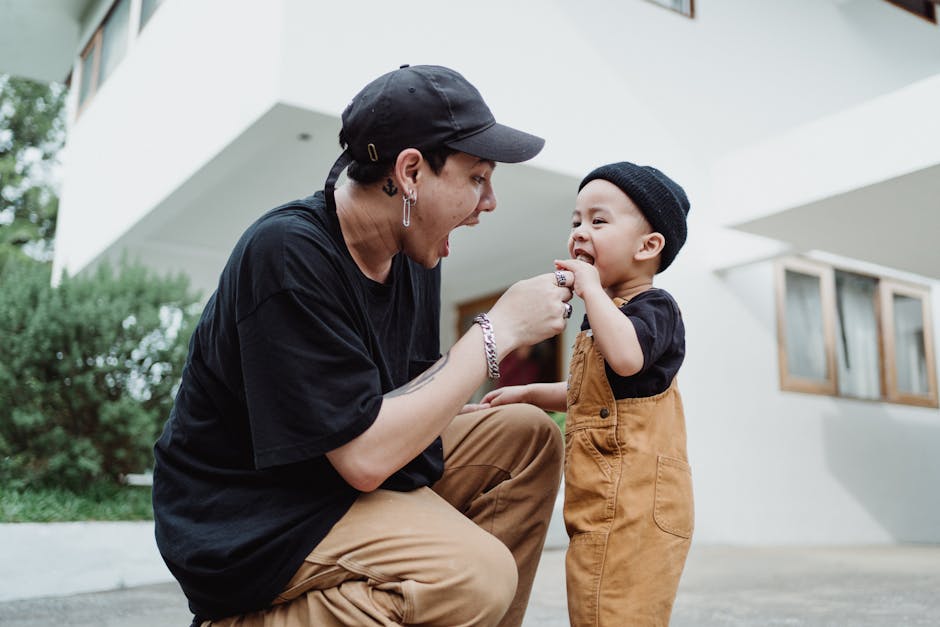How To Build Strong Friendships Through Trust?
Building strong friendships starts with one essential ingredient: trust. Without trust, even the closest bonds can feel shaky and uncertain. But when trust is present, friendships flourish, becoming a source of joy, support, and stability.
So, how do you create and nurture trust in your friendships? Stick around, because we’re diving into practical tips, relatable examples, and insights that will help you strengthen your connections and build friendships that stand the test of time.
Key Takeaways
- Trust is the foundation of any meaningful friendship.
- Recognizing behaviors that harm trust is crucial.
- Open communication and mutual respect are key to building trust.
- Strong friendships require effort, consistency, and time.
Introduction to Building Strong Friendships Through Trust
Importance of trust in friendships
Think of trust as the glue that holds friendships together. It’s what allows you to share your secrets, rely on each other, and feel safe in the relationship. Without trust, even small misunderstandings can snowball into major conflicts.
Trust isn’t just about honesty—it’s about reliability, respect, and showing up for each other. When you trust someone, you know they have your back, no matter what.
Overview of challenges in building trust
Building trust isn’t always easy. Maybe you’ve been hurt before, or perhaps you struggle to open up. Sometimes, people unintentionally break trust through misunderstandings or lack of effort.
It’s important to recognize that trust takes time and effort to build but can be lost in an instant. That’s why understanding how to nurture trust is so important.
Benefits of strong, trust-based friendships
When trust is present, friendships become a safe haven. You can be your authentic self without fear of judgment. Trust-based friendships also improve your mental health, reduce stress, and provide a sense of belonging.
Plus, let’s be honest—life’s ups and downs are much easier to handle when you have a trusted friend by your side.

Recognizing Behaviors That Impact Trust
Identifying genuine versus conditional friendship behaviors
Not all friendships are created equal. Some people may only stick around when it’s convenient for them. Recognizing the difference between genuine and conditional behaviors is key to protecting your trust.
Signs of self-serving or insincere actions
Have you ever had a friend who only calls when they need something? Or someone who disappears when you’re going through a tough time? These are red flags that the friendship might not be as genuine as it seems.
Recognizing excessive or insincere compliments
While compliments are great, over-the-top flattery can sometimes feel fake. Pay attention to whether the praise feels genuine or if it’s being used to manipulate or gain favor.
Understanding the impact of effort in maintaining friendships
Friendships are a two-way street. If one person is doing all the work, it can lead to resentment and a breakdown of trust.
Lack of effort as a red flag
If your friend consistently cancels plans, forgets important dates, or doesn’t check in, it might be time to have an honest conversation about the relationship.
Balancing mutual priorities in the relationship
Healthy friendships require both people to make an effort. This means showing up, listening, and making time for each other, even when life gets busy.
Addressing negative comments and their effect on trust
Words have power. Negative or hurtful comments, even if said jokingly, can chip away at trust over time.
If a friend’s words are making you feel small or unimportant, it’s essential to address the issue. Open communication can help clear the air and rebuild trust.

Building Trust Through Mutual Respect and Support
The role of mutual respect in friendships
Respect is the foundation of trust. When you respect your friend’s boundaries, opinions, and feelings, you create a safe space for the friendship to grow.
Giving and receiving genuine compliments
A simple, heartfelt compliment can go a long way in showing appreciation. Just make sure it’s sincere—people can usually tell when you’re not being genuine.
Avoiding behaviors that erode trust
Gossiping, lying, or breaking promises are surefire ways to damage trust. Instead, focus on being honest and dependable.
Creating a balanced and healthy friendship dynamic
Friendships should feel like a partnership, not a one-sided effort.
Recognizing signs of exhaustion in friendships
If you’re feeling drained or unappreciated, it might be time to reassess the dynamic. A healthy friendship should leave you feeling uplifted, not exhausted.
Ensuring the relationship is mutually beneficial
Both friends should feel valued and supported. If one person is always giving while the other is always taking, it’s time to find a better balance.

Effective Communication as a Foundation for Trust
Importance of open communication in resolving conflicts
Conflict is inevitable in any relationship, but how you handle it can make or break the friendship.
Creating a safe space for honest conversations
Encourage open dialogue by being a good listener and avoiding judgment. When your friend feels safe to share, trust naturally grows.
Approaching tough discussions with curiosity
Instead of jumping to conclusions, ask questions and try to understand your friend’s perspective. This approach can help resolve misunderstandings and strengthen your bond.
Strategies for strengthening trust through communication
Focusing on future possibilities rather than past grievances
Dwelling on past mistakes can keep you stuck. Instead, focus on how you can move forward and build a stronger friendship.
Using personal stories to foster understanding
Sharing your own experiences can help your friend see where you’re coming from. It also creates a sense of vulnerability, which is essential for building trust.

Strengthening Friendships Over Time
Consistency and reliability as trust-building factors
Trust isn’t built overnight. It’s the result of consistent actions over time. Showing up, keeping your promises, and being there when it matters most are all ways to strengthen trust.
Celebrating milestones and shared experiences
Whether it’s a birthday, a promotion, or just a random Tuesday, celebrating together creates memories that deepen your bond.
The long-term payoff of trust-based friendships
Friendships built on trust are like a good investment—they pay off in the long run. These relationships provide stability, joy, and a sense of belonging that’s hard to find elsewhere.
Conclusion
Recap of key strategies for building trust
To build strong friendships, focus on trust, mutual respect, and open communication. Recognize behaviors that harm trust and work to create a balanced, supportive dynamic.
Encouragement to prioritize trust in friendships
Trust is the heart of any meaningful friendship. By prioritizing trust, you’re not just building stronger relationships—you’re also creating a support system that will enrich your life.
Final thoughts on the value of strong, resilient friendships
Life is better with friends you can trust. These relationships bring joy, comfort, and a sense of belonging that’s truly priceless. So take the time to nurture your friendships—you’ll be glad you did.
For more tips on creating meaningful connections, check out this guide on supportive friendships or explore strategies for building trust in relationships.
FAQ: Building Strong Friendships Through Trust – Your Guide to Meaningful Connections
Why is trust important in building strong friendships?
Trust is the foundation of any meaningful relationship. It allows friends to feel safe, valued, and supported, fostering open communication and mutual respect. Without trust, misunderstandings and insecurities can weaken the bond over time.
How can I build trust with a new friend?
Building trust with a new friend starts with being honest, reliable, and consistent. Show genuine interest in their life, actively listen, and follow through on promises. Small actions over time demonstrate your commitment to the friendship.
What are some signs that trust is growing in a friendship?
Signs of growing trust include open and honest conversations, vulnerability, and mutual support. If both friends feel comfortable sharing personal thoughts and relying on each other, it’s a good indicator that trust is strengthening.
How can I rebuild trust if it has been broken in a friendship?
Rebuilding trust takes time, patience, and effort. Start by acknowledging the issue, offering a sincere apology, and taking responsibility for your actions. Consistently demonstrate trustworthy behavior and allow your friend the space to heal and regain confidence in you.
What role does communication play in fostering trust in friendships?
Effective communication is key to building trust. Being open, honest, and respectful in conversations helps prevent misunderstandings and strengthens the bond. Active listening and expressing empathy also show your friend that you value their perspective.
Can trust in a friendship grow over time, or does it need to be immediate?
Trust often grows over time as friends share experiences and demonstrate reliability. While some level of initial trust may exist, deeper trust is typically built through consistent actions, shared values, and mutual respect.
How can I handle a friend who struggles with trusting others?
If your friend struggles with trust, be patient and understanding. Avoid pressuring them to open up and instead focus on being a reliable and supportive presence. Over time, your consistent actions may help them feel more comfortable and secure in the friendship.
What are some common behaviors that can damage trust in a friendship?
Behaviors like dishonesty, gossiping, breaking promises, or being unreliable can damage trust. Even small actions, like consistently canceling plans, can erode confidence in the friendship over time. Being mindful of your actions and words is crucial.
How can I maintain trust in long-distance friendships?
Maintaining trust in long-distance friendships requires effort and communication. Regular check-ins, honesty, and showing interest in each other’s lives help keep the bond strong. Being dependable and following through on commitments also reinforces trust despite the distance.
What should I do if I feel like my trust in a friend is one-sided?
If you feel your trust is one-sided, have an open and honest conversation with your friend. Share your feelings and listen to their perspective. It’s important to assess whether the friendship is balanced and mutually supportive, and decide how to move forward based on the discussion.



